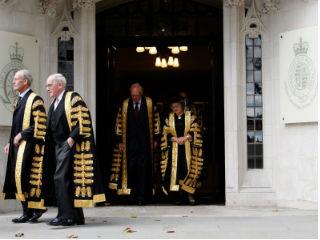by
N. Peter Kramer
A decision to evoke Article 50 could lead to Britain’ exit from the EU within 2 years.
The verdict is a setback for Prime Minister Theresa May, who let immediately know that the government will appeal to the Supreme Court, that will take the case in the beginning of next month.
The government still asserts that it alone has the right to invoke Article 50 under the royal prerogative which give it sole authority over foreign policy and over the making of treaties. And it was Parliament that decided to hold the referendum.
But the High Court explicitly rejected this line in its judgement. Its argument is that the 1972 European Communities Act, which gives effect to Britain’s EU membership, is a matter of domestic law not of foreign policy.
Although Brexiteers campaigned on the promise to take back powers from "Brussels" to Westminster, the government has resisted to give Parliament a say. Although Prime Minister has promised to keep Parliament informed over her plans, but not to give a "running commentary" for fear this will undermine her negotiating position.
She has also promised a Great Repeal Bill that will give domestic effect to most EU law after Britain leaves the Union. And it is also clear that Parliament will need to approve the terms of Britain’s departure and its future relations with the EU.
The question is, would the Parliament block a Brexit? The majority of MP’s in the House of Commons and peers in the House of Lords backed the Remain side in the referendum. Since the referendum showed a clear majority of constituencies for Leave on a very high turnout of voters, it seems unlikely that Parliament will block Brexit.






